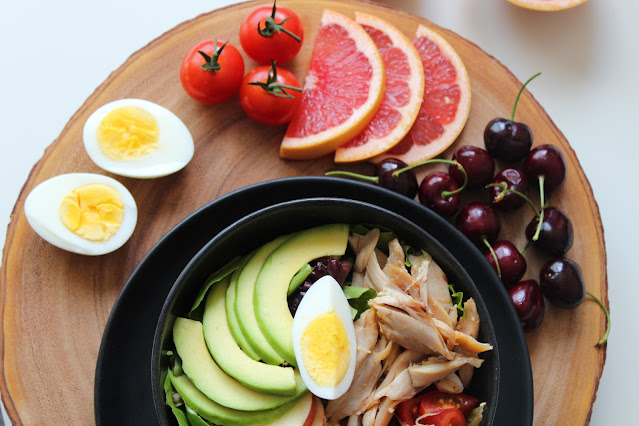Everyone knows that eating healthy is good for you, but it can be difficult to start eating more whole foods without restricting yourself from the delicious foods that make you happy.
The secret to eating healthy and happy begins with creating just one change each week to your diet, whether starting your day with a green smoothie or replacing your dinner roll with a side salad each night.
These seven simple tips will help you slowly transition from an unhealthy diet to one that keeps you healthier and happier than ever!
1) Introduce more fruits and vegetables into your diet
Fruits and vegetables are a great way to start eating healthier. They're loaded with essential vitamins, minerals, antioxidants, and fiber. Fruits like apples, oranges, bananas, and strawberries contain beta-carotene, a powerful antioxidant that fights off free radicals in the body.
Vegetables like carrots and sweet potatoes are rich in vitamin A. Not only do they taste good, but they're also good for you!
2) Cut down on processed foods
Processed foods often have a lot of sugar and salt, making you feel sluggish, bloated, and gain weight. And those are just the short-term effects.
In the long term, chronic consumption of processed foods can lead to obesity, diabetes, heart disease, stroke, and even cancer. So how do you ditch processed food?
3) Eat more home-cooked meals
Eat more home-cooked meals. Food cooked at home is typically lower in salt, sugar, fat, and preservatives. Plus, it's usually higher in nutrients (such as antioxidants) than processed foods.
Ensure your cooking oil is olive or canola for the best health benefits. Vegetable oils like corn or soybean have been shown to hurt cholesterol levels (in some people).
If you're cooking at home, use whole grains instead of refined grains like white rice or bread made with white flour. Whole grains contain fiber that helps regulate blood sugar levels after eating and may reduce the risk of type 2 diabetes by 25% compared to those who don't consume whole grains often.
4) Make sure you're getting enough protein
Eating protein is essential, but it can take time to figure out what to do. Protein is crucial because it helps build muscle, which will help you burn more calories. Protein also helps repair your muscles after a workout. But how much should you be eating?
The protein you need depends on your age, weight, height, activity level, pregnancy, or breastfeeding status. You should also talk with your doctor about your diet if you have health conditions affecting how foods are digested or metabolized.
5) Incorporate more healthy fats into your diet
Incorporate more healthy fats into your diet. These include avocados, nuts, seeds, olive oil, and canola oil. They are also a great source of vitamins A, E, D, K1, and B6.
Eating these in moderation will ensure sufficient amounts of the good stuff in your diet without the high calories.
6) Drink plenty of water
Drink plenty of water. Water is the best beverage for your body, especially when exercising or in a hot environment. Drink an 8-ounce glass of water before eating breakfast or lunch.
7) Listen to your body
To be healthy and happy, you must listen to your body. It knows what it needs better than anyone else does. If you're hungry, eat something nourishing. If you're thirsty, drink something refreshing. If you're tired, take a nap or go for a walk.
Listening to your body will help keep your energy levels up by providing the fuel necessary for your body when it needs it most. Your thoughts will also be more apparent when you follow this tip because you'll feel better about yourself and know that you're doing what's best for your health at any moment.
